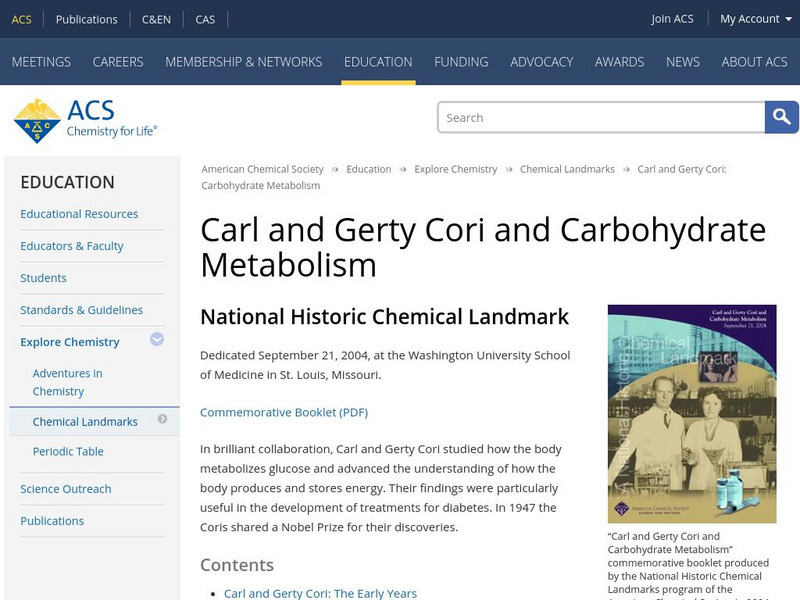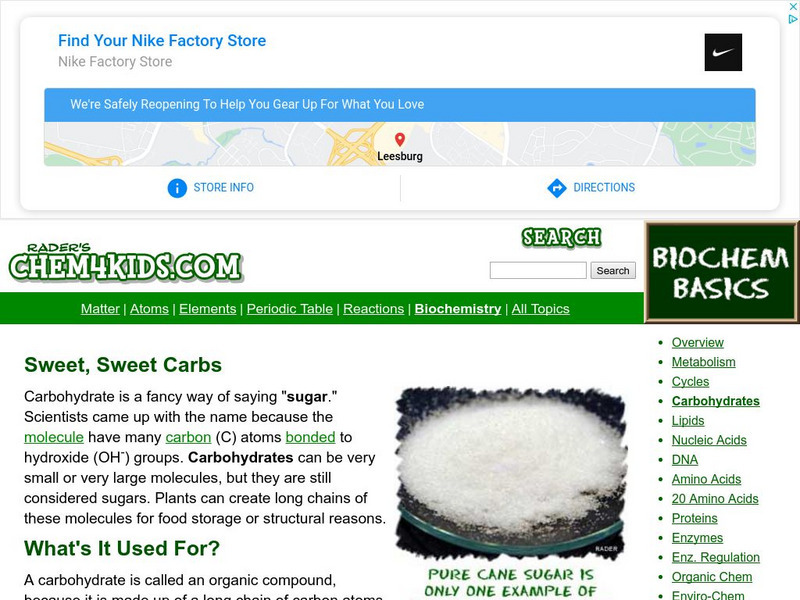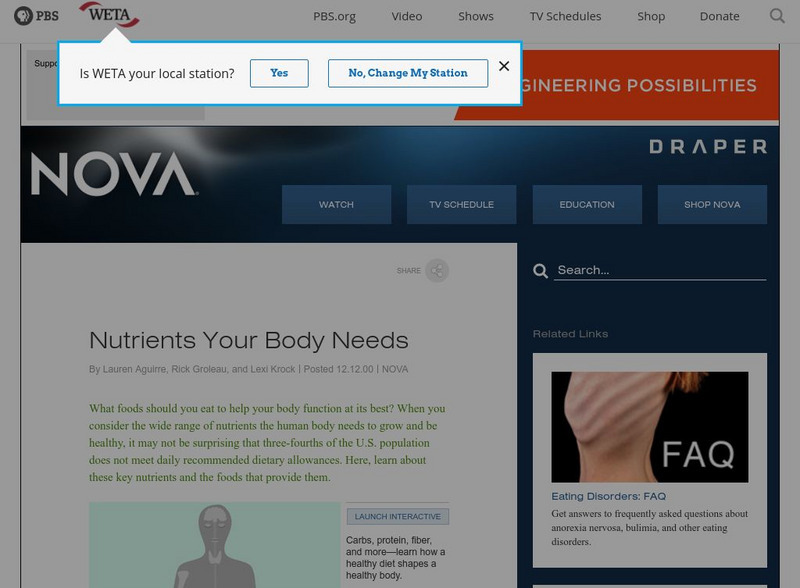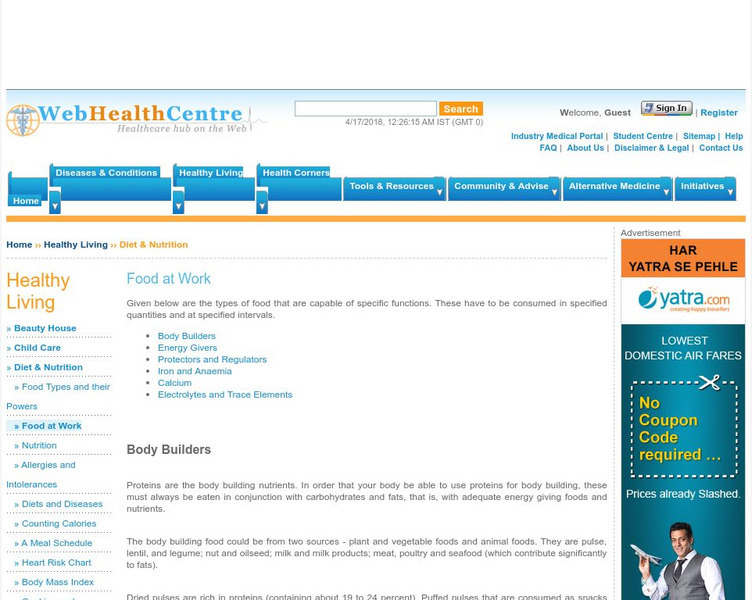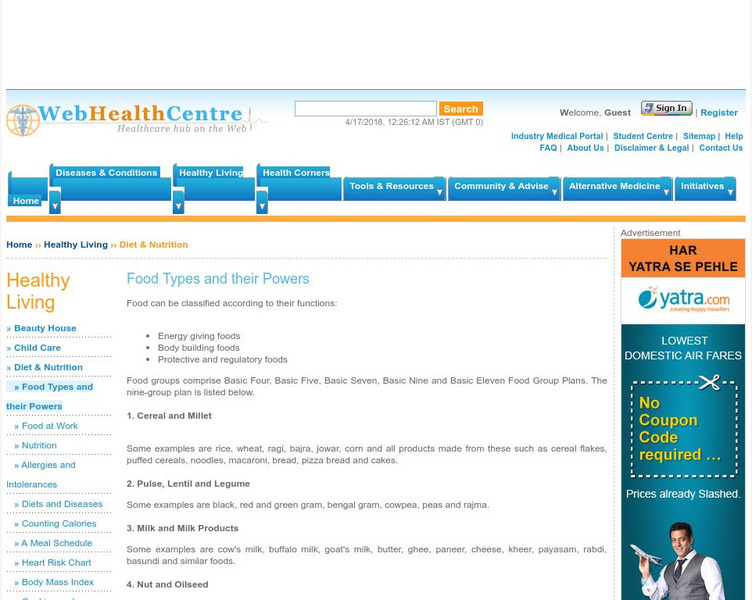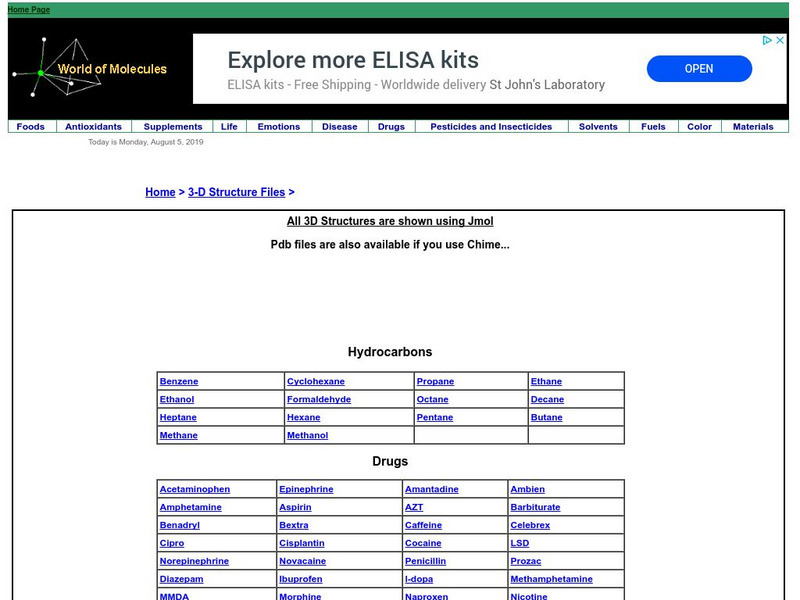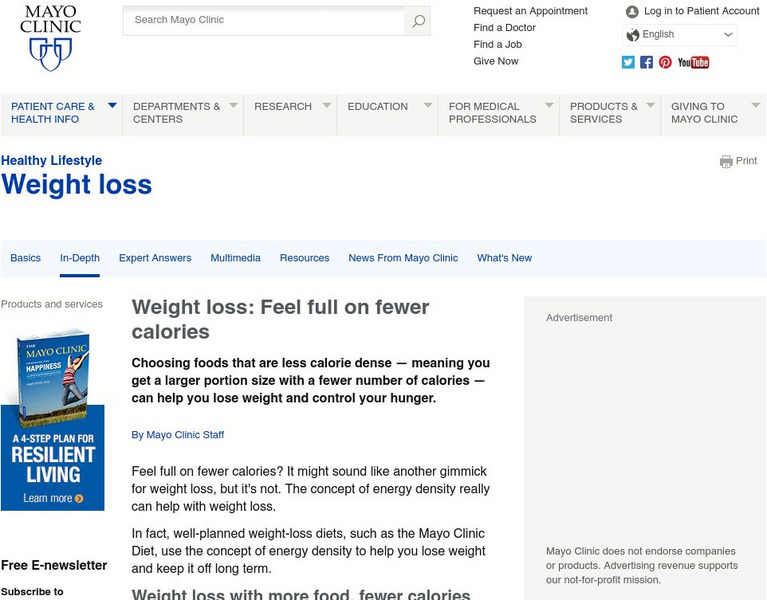OpenStax
Open Stax: Anatomy & Physiology: Chemical Digestion/absorption: A Closer Look
In this module, find out the locations and primary secretions involved in the chemical digestion of carbohydrates, proteins, lipids, and nucleic acids.
OpenStax
Open Stax: Organic Compounds Essential to Human Functioning
Learn here about organic compounds, groups of carbon atoms covalently bonded to hydrogen, usually oxygen, and often other elements as well, and how they are essential to human functioning.
American Chemical Society
American Chemical Society: Carl and Gerty Cori and Carbohydrate Metabolism
Profiles of Carl and Gerty Corbi, American biochemists who studied how the human body metabolizes glucose. Their research advanced treatments for diabetes, and won them a Nobel Prize in 1947. Includes links to additional resources.
Chem4kids
Chem4 Kids: Sweet Sweet Carbs
Here you can learn all about carbohydrates! Content explores what carbohydrates are used for in the body, as well as the different types: saccharides, regular sugars, and polysaccharides.
CK-12 Foundation
Ck 12: Life Science: Organic Compounds
[Free Registration/Login may be required to access all resource tools.] The main chemical components of living organisms are known as organic compounds and are built around the element carbon. Living things are made up of very large...
Chem4kids
Chem4 Kids: Browsing Biochemistry
Here you can learn about biochemistry, the chemistry of the living world. Content explores carbohydrates, lipids, amino acid structure and proteins, enzymes, nucleic acids, and metabolism.
PBS
Pbs Nova Teachers: Dying to Be Thin: Body Needs
Find out what the human body needs to function at its best, and why.
Khan Academy
Khan Academy: Connections Between Cellular Respiration and Other Pathways
Resource examines how non-glucose molecules such as carbohydrates, proteins, and lipids enter the cellular respiration pathway. Also, looks at the use of cellular respiration intermediates for biosynthesis.
PBS
Pbs: Scientific American Frontiers: Teaching Guide: Tasty Models (5 8)
With this lesson, learners create models of carbohydrates and proteins using pieces of candy in order "to visualize the atomic arrangements of nutrient molecules."
Science Education Resource Center at Carleton College
Serc: Investigating Starch in Foods
This lesson would be used during our nutrition unit when discussing carbohydrates. In this classroom activity students investigate which foods have starch in them by using iodine, as well as investigate the result of iodine and lemon...
National Institute of Educational Technologies and Teacher Training (Spain)
Ministerio De Educacion: La Materia Viva 2 Bachillerato
In this unit you can read about the molecules that compose us and understand their biological functions. It includes 18 interactive activities.
Wikimedia
Wikipedia: Disaccharide
Wikipedia provides a brief description of disaccharides, including hyperlinked terms and examples.
Vision Learning
Visionlearning: Food Chemistry: Carbohydrates
Read about carbohydrates, which make up one of the three "Major classes of macronutrients that are essential to living organisms." In addition to defining several terms, including carbohydrate, simple sugars, complex carbohydrates,...
TED Talks
Ted: Ted Ed: How Do Carbohydrates Impact Your Health?
The things we eat and drink on a daily basis can impact our health in big ways. Too many carbohydrates, for instance, can lead to insulin resistance, which is a major contributor to cardiovascular disease and Type 2 Diabetes. But what...
TED Talks
Ted: Ted Ed: Sugar: Hiding in Plain Sight
Robert Lustig decodes confusing labels and sugar's many aliases to help determine just how much of that sweet carbohydrate makes its way into our diets. [4:04]
BioMan Biology
Bio Man Biology: Life Chemistry Quizzes
Two multiple-choice quizzes, one on the processes and types of biological molecules, the other on the structure and replication of DNA.
Other
Hypertextbook: Large Molecules
This is a good, in-depth reference for the study of macromolecules in biology - lipids, proteins and carbohydrates. Includes images and links to other sources as well as a quiz for students to check understanding.
Other
Web Health Centre: Food at Work
Read about the roles of protein, carbohydrates, fats, vitamins, and minerals. Learn what kinds of foods are "Body builders," "Energy givers," and "Protectors," and tailor your diet so that you are getting the nutrients you need to...
Other
Web Health Centre: Food Types and Their Powers
This website describes the nutritional values of different types of foods. Learn what types of foods are sources of carbohydrates, proteins, fats, vitamins, and minerals through a chart provided at the bottom of the page.
Other
World of Molecules: 3 D Structure Files
Investigate the three-dimensional structure of various molecules- both organic and inorganic.
Indiana University
Area 10 Math and Technology Project: Nutrition Labels
Lesson Plan involving all aspects of reading a nutrition label. Emphasizes math skills. Includes links to a teacher outline, student copies and reference materials.
McGraw Hill
Glencoe Biology: The Building Blocks of Life: Self Check Quiz
Try these five multiple-choice questions about the building blocks of life. The quiz is self-checking, and provides hints to the student if needed.
University of Hamburg
University of Hamburg: Sugars, Carbs, Monosaccharides
Description of the chemical makeup of monosaccharides, accompanied by molecular diagrams of glucose, galactose, and fructose. Links to more in depth information.
Mayo Clinic
Mayo Clinic: Energy Density & Weight Loss:feel Full on Fewer Calories
This article is medium-sized in length and provides great information on the subject. Links are provided for additional information as well.




